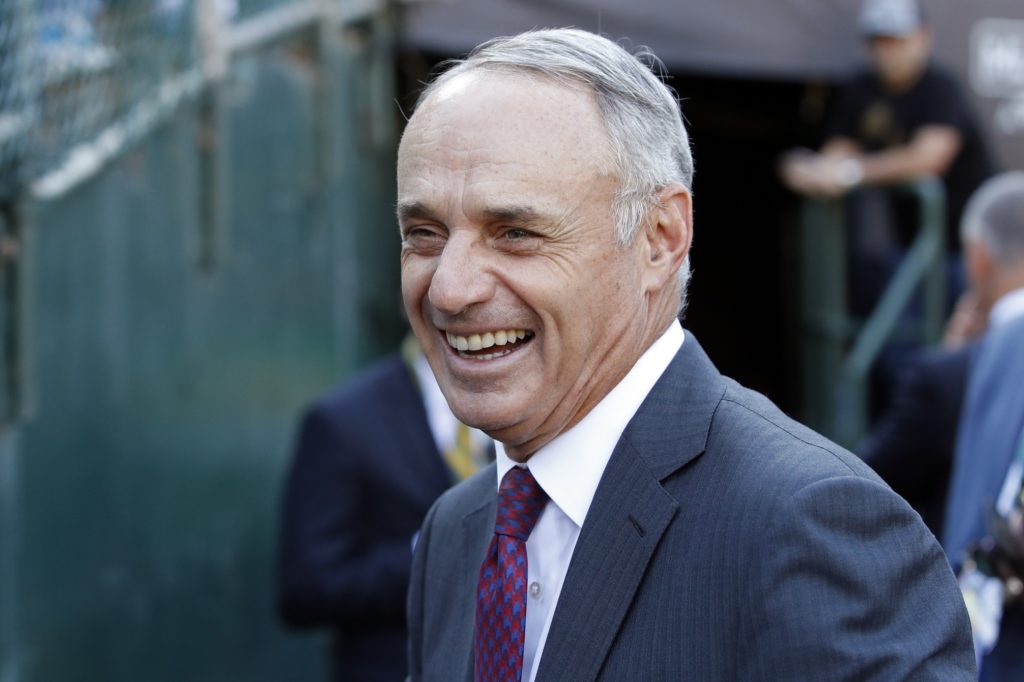Ad Disclosure
Home Runs Won’t Save Baseball This Time
By Bob Wankel
Published:

I come with an honest question for you.
Do you really care about the process behind baseball’s current labor talks?
I don’t mean the end result of games played, homers hit, bats missed, and a champion crowned. I mean the back and forth finger-pointing and brewing bad blood that we’re going to read and hear so much about in the coming days.
I don’t. I suppose I should, but I don’t, at least not yet. Maybe that’s because I’m only sweating the end, not the means.
The latest round in the battle between the MLBPA and MLB owners comes following decades of labor peace, and it is not without high stakes. A season, and perhaps what remains of the sport’s waning reputation, each hang in the balance.
Brutally scaled salaries highlight an owner-led proposal that, among other things, pits the game’s top earners against eager upstarts and veterans whose careers are a bad slump away from meeting their expiration dates:
The idea of the highest-paid players potentially giving up something so that those who make less can reap the benefits isn’t inherently wrongheaded. But this — this felt absolutely egregious to players. And it’s why their counter, whenever it comes, won’t look anything like this.
— Jeff Passan (@JeffPassan) May 27, 2020
As professional sports leagues around the globe make progress toward season restarts, baseball remains stuck in neutral after a less-than-encouraging first day of what is being tabbed by many as a make-or-break week for the 2020 season.
That leaves starved sports fans, ones dreaming of a late summer/early fall sports orgy, left to parse the details of a deadlock between the two sides. We are thus presented with the age old, “who ya with?” predicament – the millionaire players or the billionaire owners?
Are the most recent proposed salary reductions Draconian measures necessitated by short-term devastation to the game’s economics, or is this all just a mere exercise in greed and manipulation?
“Guess there’s not going to be a season,” seemed to be the prevailing takeaway after the first wave of negotiation leaks last night, but that conclusion feels premature.
As America searches for a semblance of normalcy, symbolically embedded in sports, it would have made for a great story if MLB Commissioner Rob Manfred and MLBPA Executive Director Tony Clark whispered sweet virtual nothings to one another as a return plan was laid out, but that was never going to happen. And so what if it didn’t?
Forget other leagues when evaluating baseball’s predicament. Many have been quick to point out how the NHL and NBA are seemingly negotiating returns with comparative ease to baseball, but those sports are in entirely different situations.
All 31 NHL teams had played at least 82.9% of its regular season schedules, while all 30 NBA teams had completed at least 78% of its schedules. While those leagues and its players have and will, too, make sacrifices moving forward, a far higher percentage of this season’s checks have been cashed by those players.
Ultimately, perhaps I’m simply desensitized to the business end of the game, and that’s why I’m not overly concerned about what transpired yesterday. And maybe my current stance will prove to be incredibly naive and end up on Freezing Cold Takes, but I hold steadfast in my belief that these two sides will reach a middle ground.
Why?
Because they have to find a middle ground. More than a condensed season is at stake as baseball desperately tries to keep a grasp on its slipping popularity, and unlike what transpired following the lost season of 1994, home runs aren’t going to save it this time around.
Bob Wankel covers the Phillies for Crossing Broad. He is also the Vice President of Sports Betting Content at SportRadar. On Twitter: @Bob_Wankel E-mail: b.wankel@sportradar.com